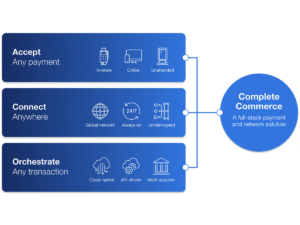The countdown is on for the PSTN (Public Switched Telephone Network) and ISDN (Integrated Services Digital Network) switch off at the end of 2025. But while that sounds like a long way off, key developments are happening now that you need to be aware of.
Announced by BT in November 2017, the UK’s PSTN is reaching its end-of-life and needs replacing as the associated legacy equipment has become inefficient to manage in terms of cost and speed. It marks one of the biggest changes in the UK telecom industry infrastructure in the past 30 years. New digital technologies are now available and BT and Openreach is concentrating on developing the country’s fibre network with a pledge to invest a massive £12 billion into the IP upgrade. This will connect over 20 million premises in the UK and provide a more reliable, faster and resilient service.
Businesses need to start planning now to understand, firstly the potential impact of the change, and secondly if they need to migrate to IP broadband solution and make any associated equipment upgrades ahead of the switch off to ensure a smooth transition to an IP broadband service. All businesses operating via ISDN or PSTN lines will need to migrate as once the lines are withdrawn there will be no broadband service to support WLR (Wholesale Line Rental) communications. Also, it’s not just telephone calls via landlines that will be affected as many other technologies are also reliant on PSTN lines (and associated WLR services to support their estates of POS terminals, ATMs, vending machines and other remote payment devices that operate via PSTN related WLR service.
How will this impact my business now and in the future?
As Openreach’s roll out of fibre continues, it is issuing Stop/Sell notices on PSTN and legacy WLR services every quarter relating to tranches of exchanges across the UK (where the associated exchanges relating to each tranche reach the agreed threshold of 75% full fibre (broadband) coverage at those exchanges. June 2020 saw the first Stop/Sell notices issued affecting 117 exchanges so if you are connected to one of these the clock is already ticking (with the June 2021 closure imminent). A further 51 exchanges saw Stop/Sell notices issued in October 2020 with another 51 exchanges covered by a subsequent notice in January 2021.
These Stop/Sell notices provided a 12-month warning that legacy copper based WLR services will no longer be available from those affected exchanges on expiry of that notice period. If you connect at one of those initial 117 exchanges, you will need to migrate to IP-based technology before June 2021. If you have not been affected yet it’s just a matter of time as the rollout continues.
As part of the associated Openreach pilot, Salisbury and Mildenhall have already had their Stop/Sell notice deadline pass and Openreach is using this pilot phase to test new IP products and refine its approach.
This withdrawal of WLR services gives users the perfect rational to review their operations and while initially it may seem a daunting task, it will help them to strengthen their business as they move forward. Many retailers may also discover that they already have compatible POS terminals that don’t require upgrading so for some the switching process is likely to not be as disruptive as anticipated.
How can TNS support the migration?
TNS is participating in several advisory groups related to the switch off and will provide updates to all our customers. We will also notify you when Openreach issue Stop/Sell notices impacting other local exchanges. As the migration gets underway, TNS will produce advice regarding the risks to the current PSTN-based services and where we see trends developing so you can rest assured that we are doing everything possible to ensure you are prepared for this change.
There is much to be taken into consideration before the switch off. By developing your migration plans now and looking into the options available to you, you will ensure you are prepared when the time comes. Our new dedicated UK WLR Switch website contains further information and a checklist of points to be considered along with useful insights into the technical aspects of the PSTN switch off and status of the exchanges.
This is the first in a series of blogs about the switch off so be sure to check back for future blogs in this series and you can also join our LinkedIn group to keep abreast of developments and milestones. If you have any further questions about the switch off and how you will be impacted please contact your TNS account manager or email solutions@tnsi.com.
Lisa Sutton is Vice President and Country Manager, UK and Ireland, Payments Market business. As part of TNS’ wider European leadership team, Lisa is responsible for all business activities in UK and Ireland.






